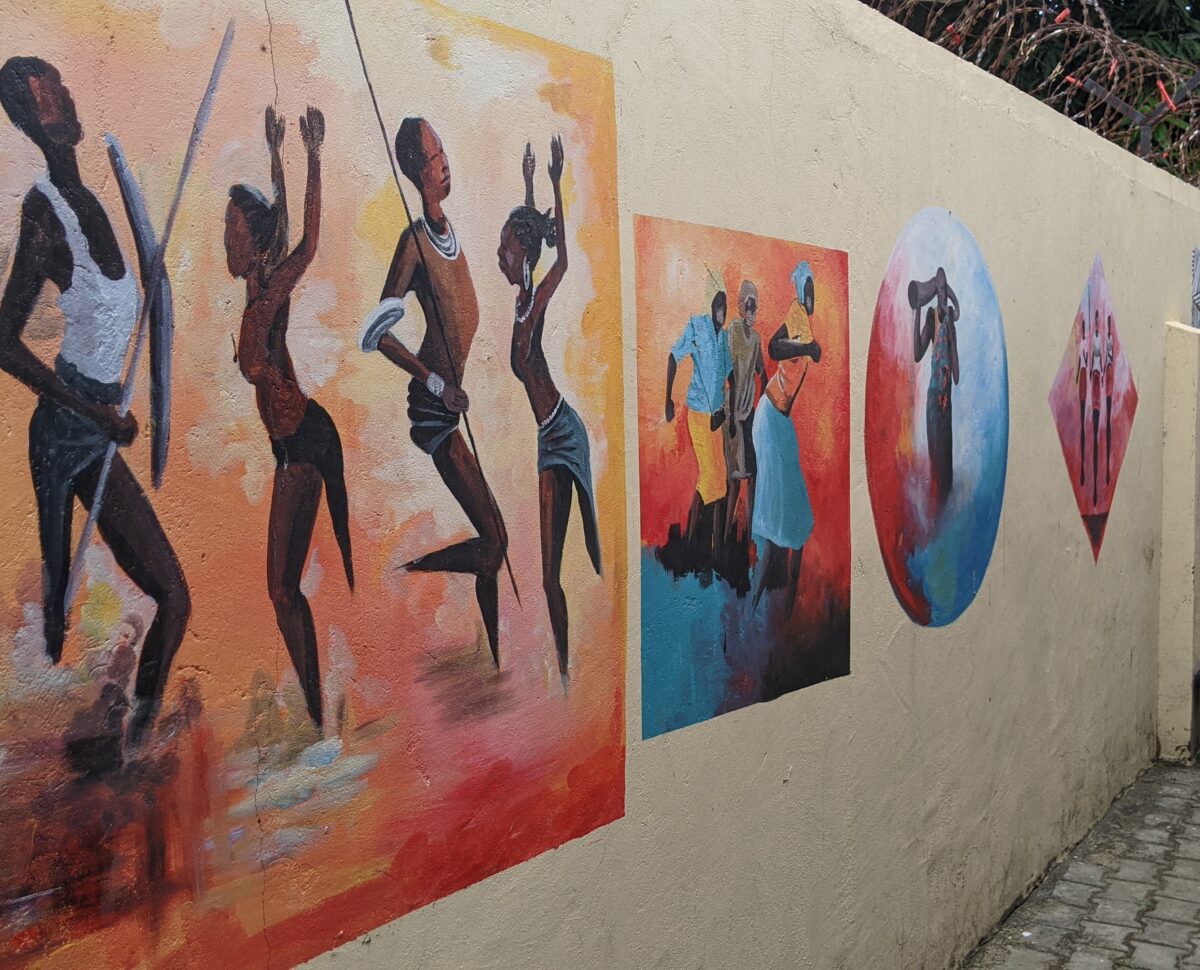
Theresa Bachmann
The mainstreaming of basic knowledge and stabilisation skills among scholars should not be understood as a luxury, but as a necessity…
Fieldwork and deep, immersive engagement with conditions on the ground are fundamental to Civil War Paths project researchers. They are not alone: ethnographic research methods are gaining traction in political science more generally. And for good reason, as Toni Rouhana‘s reflections on the need to revise non-grounded scholarly truisms illustrate. Because they involve studying people in the natural surroundings of their everyday lives, ethnographic research methods are well-positioned to generate the kind of context-sensitive analysis the UN recognises as fundamental to ‘sustainable peace’. However, they also pose important risks and challenges – not least of an emotional and psychological kind. These are particularly pertinent to research in and with people from (post-)war settings.
In this blog, I combine reflections on inclusive peacebuilding in Colombia with my experience of nine months of professional trauma training. In doing so, I am informed by a growing body of literature highlighting the dangers and implications of trauma for researchers and research participants alike. While these may have different origins – depending on whether traumatisation occurs through direct experience or indirectly through listening to survivor testimonies – the resulting psychological symptoms, treatment, and prevention measures remain similar. Integrating both in my reflections, I argue that trauma preparedness benefits all those involved in research. Hence, the mainstreaming of basic knowledge and stabilisation skills among scholars should not be understood as a luxury, but as a necessity.
Challenges of past and current violence in researching present-day Colombia
My research involves extended periods of time in and with people from rural areas of Colombia’s Sierra Nevada de Santa Marta. The region has been an epicentre of Colombia’s internal armed conflict. Forced displacement has been so commonplace that most people only mention it as a mere sidenote. Control of the region remains under dispute between two (neo-)paramilitary groups, moreover. Alongside collective extorsions, intimidations, and community curfews, both groups target especially social leaders and human rights defenders with threats, abductions, torture, and killings. Despite this background, no-one I spoke to during research has ever received any kind of psycho-social assistance.
I do not research violence as such. In fact, I actively try to avoid testimonies of people’s suffering. Nevertheless, both past and present violence massively affects research participants, myself, and my research. Numerous people told me they didn’t want to be involved in politics (including the peace agreement implementation I am studying) because they had concluded from past guerrilla and paramilitary rule that this meant trouble. One person I planned to interview was killed on the eve of our meeting. Both research participants and regional scholars who support my research are regularly threatened. Due to a massive spike in paramilitary presence this year, I could no longer justify accessing some communities to conduct my research as planned. As a result, my research changed to keep participants as safe as possible. As far as I know, my own safety has not been at risk while in Colombia. Nevertheless, nightmares and panic attacks haunted me repeatedly. Likewise, my time in the scenically beautiful Sierra Nevada was often pervaded by feelings of fear and terror.
The case for trauma training
Extreme stress can induce trauma and related diseases. Everybody has a different risk of developing trauma-related symptoms. However, the consequences are severe and affect the brains, bodies, and minds of individuals (and even their descendants), as well as their behaviour, relationships, and very survival.
Generally speaking, (extended) violence and civil wars pose a high risk of traumatisation. This risk is further elevated by the global lack of (access to) psycho-social infrastructure. Scholars must be aware that research participants may be traumatised. Even very basic trauma training empowers researchers to recognise and alleviate the immediate manifestations of trauma they may encounter during their research. Yet, although university ethics approvals oblige scholars to reflect on their research’s potential physical and psychological harms, they rarely demand concrete trauma-related skills and knowledge. Hence, the issue of trauma preparedness also comes down to how broadly researchers personally interpret the ‘do no harm’ principle, one of the cornerstones of ethical research with human beings.
Some might dismiss my call for enhancing researchers’ trauma capacity as an additional burden or unaffordable luxury. However, this ignores that trauma training also benefits scholars. First, researchers themselves are at risk of traumatisation, either directly or indirectly. Psychological research shows that preparation and training can reduce the impacts of traumatic stress. This corresponds with my own experience. The simple fact of knowing I had been trained in stabilisation exercises to control anxiety and distress (e.g., 5-4-3-2-1 and safe-space exercises) had an extremely empowering effect for my work in Colombia.
Second, non-local researchers may not be able to cope with distressing experiences as well as research participants. On several occasions during my fieldwork, I experienced overwhelming distress, whereas local inhabitants remained completely calm. Generally speaking, I was impressed by participants’ resilience – despite their adverse living conditions. I am not suggesting there is no need for local psycho-social support. Rather, I think it is necessary to consider diverging needs and coping capacities between researchers and participants. Research – and especially fieldwork – is inherently unpredictable. Mitigation and contingency planning cannot rule out crises or emergencies. Trauma training equips scholars with practical tools to navigate these situations, as well as the wider challenges we face as part of a highly demanding academy. As such, its positive impact on emotional well-being and stability should not be dismissed as we design and carry out research in and with people from civil war settings.
Taking action
There is now a great deal of attention to the relevance of trauma for research. Nevertheless, concrete skills on how to deal with the acute stress and trauma-related symptoms scholars encounter during research remain a rarity. But awareness alone is insufficient when not paired with practical training. The mainstreaming of trauma training at universities – even at a very basic level – would not only enable researchers to recognise trauma (knowledge which is fundamental both to preventing traumatisation and treating existing trauma). It would also equip researchers with techniques they can use for themselves or others in handling distressing and potentially traumatising situations. This does not mean that scholars should scent trauma everywhere. It means they should get a basic set of knowledge and skills that help them to properly recognise trauma in the first place, which is fundamental to developing adequate responses.


